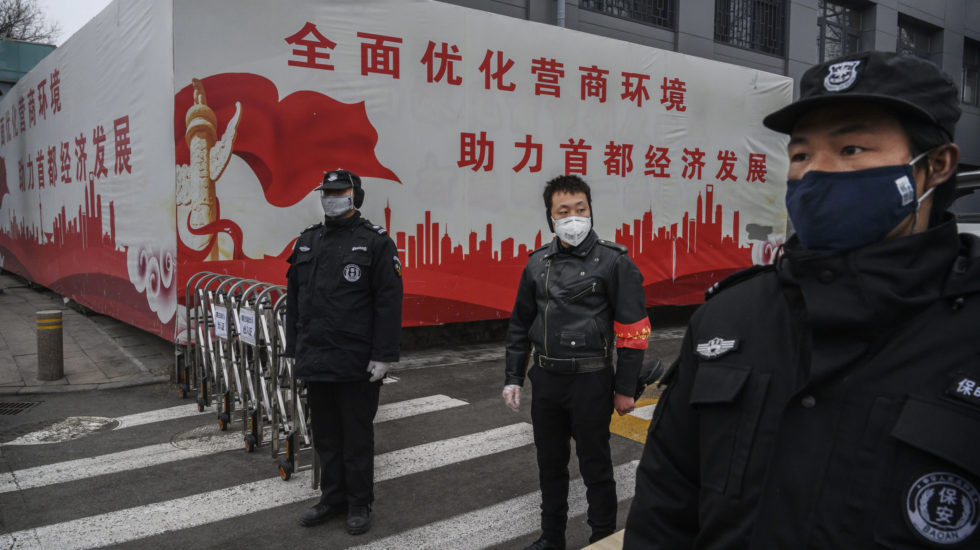China, where the Covid-19 coronavirus hit first and hardest, now appears to be making significant progress against the deadly outbreak.
Beijing reported just 125 new cases of infection on Tuesday — a sharp drop from just a few days ago — while in places like South Korea, Iran and Italy, the virus continues to spread rapidly.
Worldwide, more than 90,000 people have been infected and about 3,100 have died, the vast majority in China.
At least 70 countries now face the same challenge that China did two months ago — containing the highly infectious virus while working to save the lives of those who contract it.
“Virus clusters in the United States led schools and subways to sanitize, quickened the search for a vaccine and spread fears among nursing home residents, who are especially vulnerable,” reports the Associated Press, noting that there are now more than 100 known infections in 15 states; six people have died, all in Washington state.
“We are in uncharted territory,” declared World Health Organization (WHO) chief Tedros Adhanom Ghebreyesus.
WHO wants the world to follow China’s lead.
The organization’s assistant director-general, epidemiologist Bruce Aylward, recently led a group of experts to China to study the outbreak and the government’s response.
The group concluded that “China’s bold approach to contain the rapid spread of this new respiratory pathogen has changed the course of a rapidly escalating and deadly epidemic.”
In an interview with Vox, Aylward was asked about human rights concerns, in light of China’s harsh lockdowns on whole cities and regions of the country.
“I think people aren’t paying close enough attention,” Aylward said. “The majority of the response in China, in 30 provinces, was about case finding, contact tracing, and suspension of public gatherings — all common measures used anywhere in the world to manage [the spread of] diseases.”
In places like Wuhan, in China’s central Hubei province, where the virus first erupted, extreme measures were justified, Aylward said.
“These are places that got out of control in the beginning,” he said, “and China made this decision to protect China and the rest of the world.”
So what did China do that was most effective? Asked Vox’s Julia Belluz.
“I think the key learning from China is speed — it’s all about the speed,” Aylward said. “The faster you can find the cases, isolate the cases, and track their close contacts, the more successful you’re going to be.”
China’s response, he said, “demonstrates is if you settle down, roll up your sleeves, and begin that systematic work of case finding and contact tracing, you definitely can change the shape of the outbreak, take the heat out of it, and prevent a lot of people from getting sick and a lot of the most vulnerable from dying.”
Another key, Aylward said, is getting information about the virus to as many people as possible, as quickly as possible. If they recognize the possibility they might have contracted the virus, they should not go to health-care facilities where they could spread it farther, but stay home, self-quarantine; they may get sick, but outside China’s Covid-19 epicenter, the death rate has been very low.
Asked why the virus appears not to affect children nearly as much as adults and especially the elderly, Aylward said:
“It’s a million-dollar question. There are three possibilities: Kids don’t get infected for some reason; they get infected but have a low expression of disease; they get infected and express disease like everyone else but we haven’t seen it because of schools being closed. I think the first and last aren’t the reality. So it’s that middle group” — that is, most infected children just don’t get very sick.



